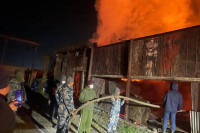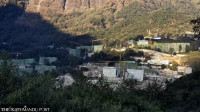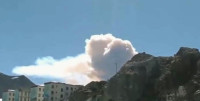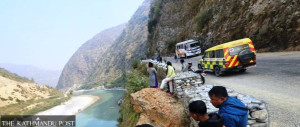Bagmati Province
Dolakha village adjoining Tibet is emptying due to prolonged border closure
Residents say the government has not taken diplomatic initiative to reopen the border so that they could ply traditional trade.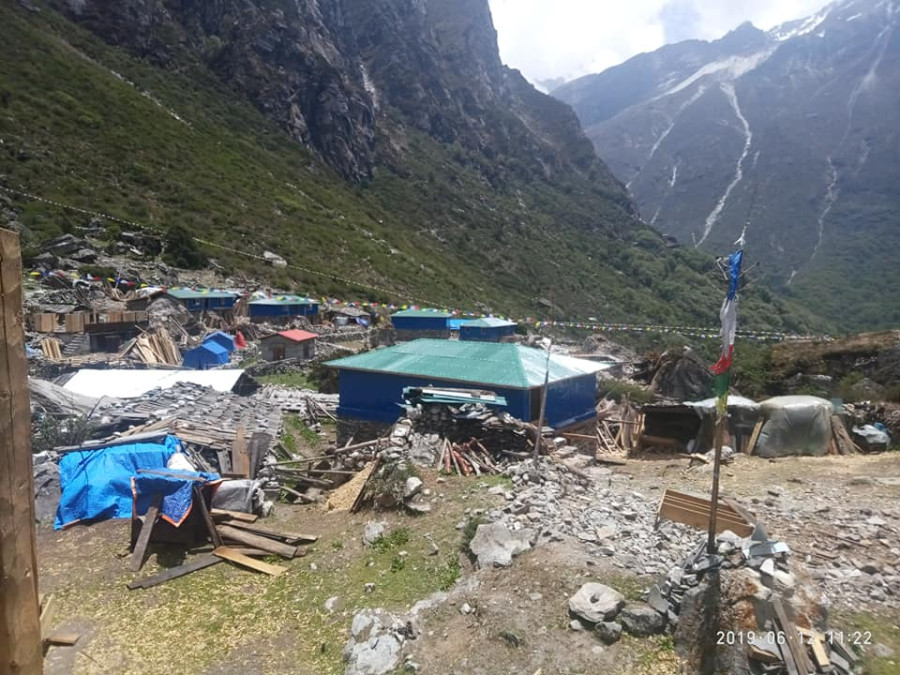
Kedar Shiwakoti
Residents of Dolakha’s Lapchi village in Ward 1 of Bigu Rural Municipality near the Nepal-China border have started leaving the village for a lack of income and trade due to the border closure.
The Nepal-China border was closed during the Covid pandemic and since then despite several requests from the locals, the authorities have not taken necessary initiatives to reopen it. The locals blame the lack of diplomatic initiative from the Nepal government to reopen the border for trade and commerce for the locals.
Most households in Lapchi are engaged in the pastoral home-grown industry producing dairy products. They would take dairy products like ghee, curd and hard cheese produced from yak milk to the market across the border in Tibet. Since the border closure, Lapchi locals have not been able to sell their products, and this has resulted in a drastic reduction in their income.
The Chinese government had closed the border after the 2015 earthquake, but it was opened for residents of bordering villages. The border was closed again in 2019.
According to Temba Sherpa, a local of Lapchi, some borders connecting Nepal and China have been open to talks, but there has been no initiative to open the Lapchi border.
The local residents have been forced to walk for two days to reach Lamabagar in Bigu-1 to buy daily consumables which they would otherwise buy in the Tibetan market across the border. “Now we have to pay Rs140 per kg of goods we transport to the village,” said Sherpa. “The nearest Nepali market area is two days walk from our village whereas the Tibetan market is only a stone’s throw away. Before the border was sealed, we could go to the Tibetan market to buy essentials and return the same day.”
The locals have been bearing additional transportation costs just to bring essential goods back to the village.
“The locals of Lapchi are also dependent on China for grazing their yaks. Earlier, the locals used to graze their cattle on the Chinese land straddling the border area and used to pay 750 grams of ghee, per yak per year, to the Chinese government for using the grasslands to graze,” said Sherpa. “But these days if the Chinese authorities find even one stray yak across the border, they chase it away.”
According to Karma Baiser Sherpa, another local, they have not been able to sell yak ghee in the Tibetan market. A kilo of ghee would fetch Rs1,300, but without a buyer, the locals have more than 6,000 kg of ghee stored.
The village earlier had 48 households with more than 500 yaks. But now only 12 to 13 families remain and others have moved to cities or abroad, says Karma.
“There were around 150 of us in the village. Now only some of the houses are occupied. Most people left the village also leaving behind their traditional trade,” said Karma.
Chief District Officer of Dolakha, Komal Prasad Dhamala, said that opening and closing borders are governed by international laws; therefore, the local government can do very little to provide respite to the locals despite their repeated requests.
“We have requested the government agencies including the Prime Minister’s Office to reopen the Lapchi border. But there has been no response,” said Dhamala. “If this issue is not resolved then the village will cease to exist. The Nepal government must talk to the Chinese government to reopen the border so that the locals can continue their trade and earn their livelihoods.”




 16.12°C Kathmandu
16.12°C Kathmandu



